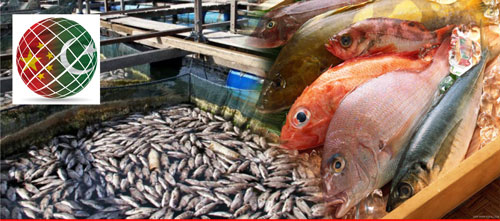Pakistan and China to jointly boost livestock, fisheries industries

Islamabad: Pakistan and Iron Brother China are looking for Joint Ventures (JVs) to boost livestock and fisheries industries, Minister for National Food Security and Research Fakhar Imam said.
He said the two friendly countries will explore opportunities in Special Economic Zones (SEZs) under the China-Pakistan Economic Corridor (CPEC).
In a meeting with Chinese officials here, Fakhar Imam said Pakistan needed to modernise livestock and fishery industries by upgrading infrastructure and building a substantial supply chain through joint enterprises with China, technology transfer and talent cultivation.
Imam pointed out a number of challenges facing these sectors, while also highlighting potential of expansion in Chinese markets, said an official statement.
During the meeting, China Animal Agriculture Association Deputy Secretary General Li Jinhui said China was the largest importer of beef and a major importer of mutton and chicken.
This presents enormous opportunities to Pakistan to enhance its beef and mutton exports, he added.
China Overseas Ports Holding Company Chairman Zhang Baozhong highlighted a number of viruses and diseases found in Pakistan’s livestock.
China has already agreed to help Pakistan establish foot and mouth disease-free zones in Punjab and Balochistan to ensure the health of the food animals under an agreement signed in 2019.
China and Pakistan are moving forward to strengthen cooperation in animal husbandry and fishery sectors.
Experts and prominent companies from both sectors continue to hold bilateral dialogue to discuss educational and industrial program and possible measures to enact such cooperation.
China recently granted a licence to a Pakistani meat exporter after lifting quarantine restrictions.
Chinese authorities had imposed quarantine restrictions on Pakistan’s meat. Currently, Pakistan exports beef to Vietnam and from there it enters into China without any restrictions. Its meat is also exported to Gulf countries and Malaysia.
Pakistan’s exports of meat and meat preparations amounted to $248.2 million in the first nine months of the current fiscal year, up seven percent year-on-year. The exports accounted for merely 1.3 percent of the country’s total exports of $18.7 billion during the period. Pakistan is self-sufficient in meat production.
Pakistan exports around four percent of beef and veal produced in a year. This was despite the fact that the country was among the top 10 beef and veal producers in the world, producing approximately 1.8 million tons. Local consumption is estimated at 15 kilograms per capita.
Earlier, speaking to Chinese Ambassador Nong Rong, Minister for Planning, Development and Special Initiatives Asad Umar emphasised the need for joint ventures between the investors of Pakistan and China in the SEZs being established in Pakistan under the CPEC.
Umar said that the SEZs under CPEC would provide maximum facilities to foreign investors. He also updated Ambassador Nong on the progress of SEZs, Allama Iqbal SEZ in Faisalabad and Rashakai SEZ near Nowshera which he said is progressing smoothly and has attracted a large number of investors already. Ambassador Nong pledged continuous support to the construction of SEZs, and other infrastructure projects under CPEC.
While discussing the progress of CPEC projects it was noted that work on Allama Iqbal SEZ in Faisalabad and Rashakai SEZ was progressing smoothly and a large number of investors had shown interest in investments in the economic zones.
The ambassador said the Chinese side would continue to actively encourage investors to benefit from investment opportunities in these zones. Progress of various other infrastructure projects was also discussed.





